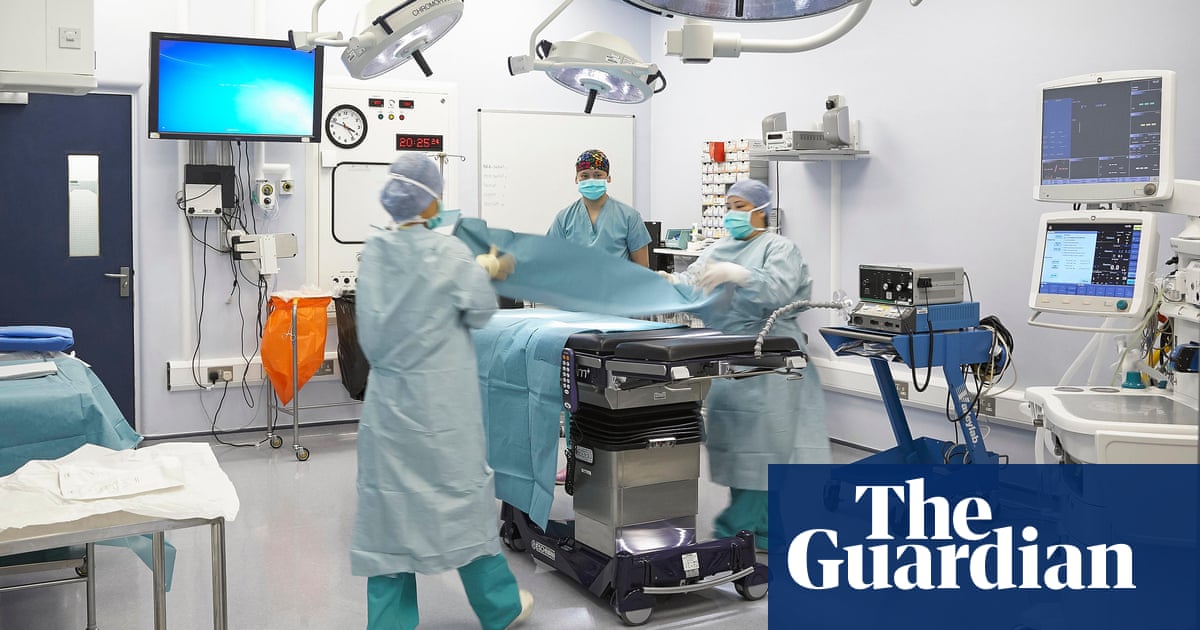Demand for private treatment booms as NHS waiting lists remain long, while more people also sign up for dental cover
Britain’s health cover market has grown by £385m in a year as the NHS crisis prompted more people to seek out private medical treatment and demand for dental insurance increased, according to a report.
The total health cover market, including medical and dental insurance and cash plans, grew 6.1% to £6.7bn in 2022, the latest year for which figures are available, according to the health data provider LaingBuisson.
About 4.2 million people were subscribed to medical cover schemes. Including dependants on the policies, 7.3 million people were covered – the highest number since 2008.
Since the market’s Covid-driven drop in 2020, when it declined by 2.2%, it has grown considerably faster than historical norms. Average annual growth was 6.1% between 2020 and 2022, compared with 1.7% between 2008 and 2019.
The NHS waiting list in England continued to lengthen, to a peak of nearly 7.8m last September. In February, it was still 7.5m and half of the patients had been waiting for 18 weeks or longer.
Private medical insurance, the largest part of the health cover market, grew by 6% year on year in 2022 to £5.3bn, more than triple the average annual growth rate of 1.8% between 2008 and 2019. After a decade of decline until 2018, more people signed up, particularly in the aftermath of the Covid-19 pandemic which led to a backlog of major procedures such as hip and knee replacements.
Tim Read, author of the report, said: “Demand began to increase in 2018, as the NHS waiting list began to rise out of control. A new Labour government is likely to aim to tackle it but will have limited fiscal headroom to make substantial progress.
“With people still struggling to access NHS services and the waiting list remaining stubbornly high, there is little likelihood that demand for health insurance is going to fall any time soon.”
Read added: “Growth is led by company-backed schemes, which may suggest an increased awareness of the impact of employee ill-health on a business – and possibly frustration at the impact that an inaccessible NHS is having on productivity.”
Growing numbers of people are also paying out of their own pockets for medical treatment, despite the high cost of some procedures, such as knee operations which typically cost between £12,000 and £15,000.
Dental insurance and capitation plans (fixed monthly payments) have shown the highest growth of the market, up 9.7% year on year in 2022. However, most people who see a dentist privately pay for treatment without any cover.
The emergence of “dental deserts” – swathes of the UK where NHS dentists are not taking on new patients – means hundreds of thousands of people have turned up in hospitals or at GPs with severe tooth decay.
The average health insurance premium went up to £1,225 in 2022 from £1,203 in 2021, according to LaingBuisson. Premiums on work policies went up to £975, while individual premiums rose to £2,252.
Insurers have flagged premium rises of more than 10%, with one placing them as high as 40% this year and possibly beyond. This reflects a rise in claims and higher medical costs. Some people who could not get what would have been a cheaper treatment option during the pandemic are now suffering from more expensive conditions to treat, Read said.
The UK health insurance market is dominated by Bupa, France’s Axa Health, Aviva and Vitality Health, which is owned by South Africa’s Discovery.
In dental insurance, the main players are Bupa, Simply Health and Unum, after Cigna left the UK market.
Read said: “I don’t think that the NHS is going to fall apart overnight or that the private sector is going to run rampant overnight. But I do think as people as customers, rather than people as taxpayers, are beginning to reconceptualise the value of paying additionally for healthcare entitlements, which technically they should get on the NHS.”



They can deny the NHS is being privatised all they want, but it won’t change the demonstrable and undeniable fact that it has been deliberately and intentionally defunded and otherwise prepared for privatisation for decades, and all talk of “reconceptualising” people as “customers” instead of “tax payers” does is prove that there is no turning back - we already have a for-profit health system in operation in this country, and at every step, be it structurally, or via advertising and normalising of private providers, it will continue to undermine our public systems until it extinguish it completely.
https://www.yournhsneedsyou.com/timeline/
https://www.patients4nhs.org.uk/how-is-the-nhs-being-privatised/
https://weownit.org.uk/public-ownership/care-work
The same is happening in Canada.